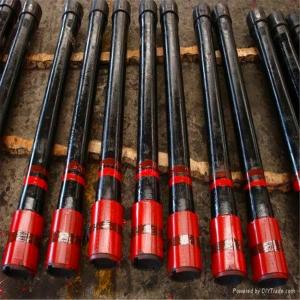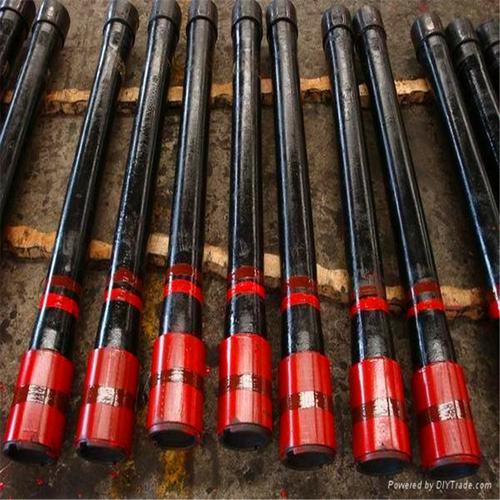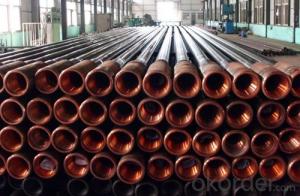High-Pressure 2-3/8" 4.5" Oil Field Tubing Pipes Wholesale Supplier
- Loading Port:
- Tianjin
- Payment Terms:
- TT OR LC
- Min Order Qty:
- 1 m.t.
- Supply Capability:
- 1100 m.t./month
OKorder Service Pledge
OKorder Financial Service
You Might Also Like
Specification
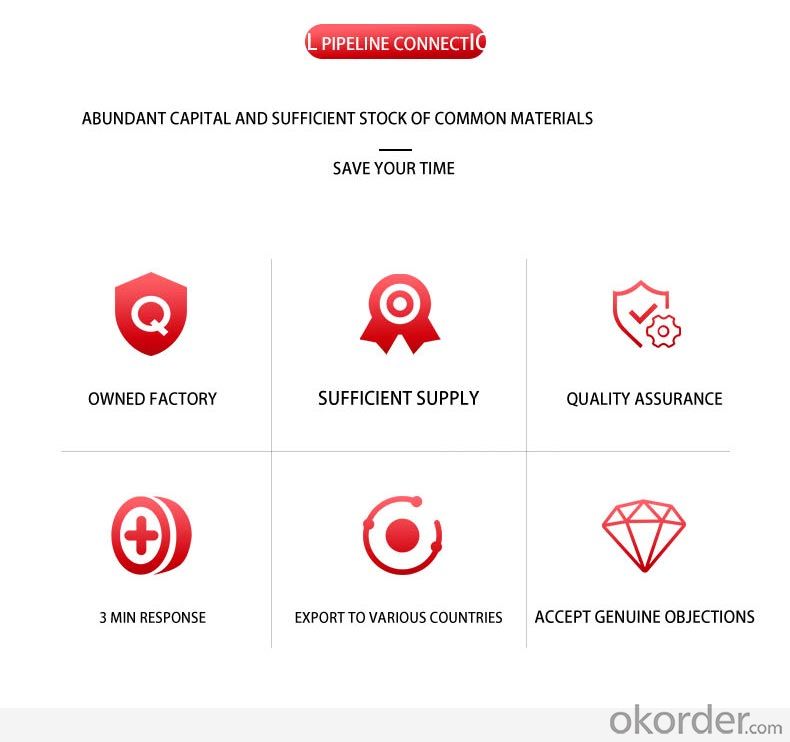
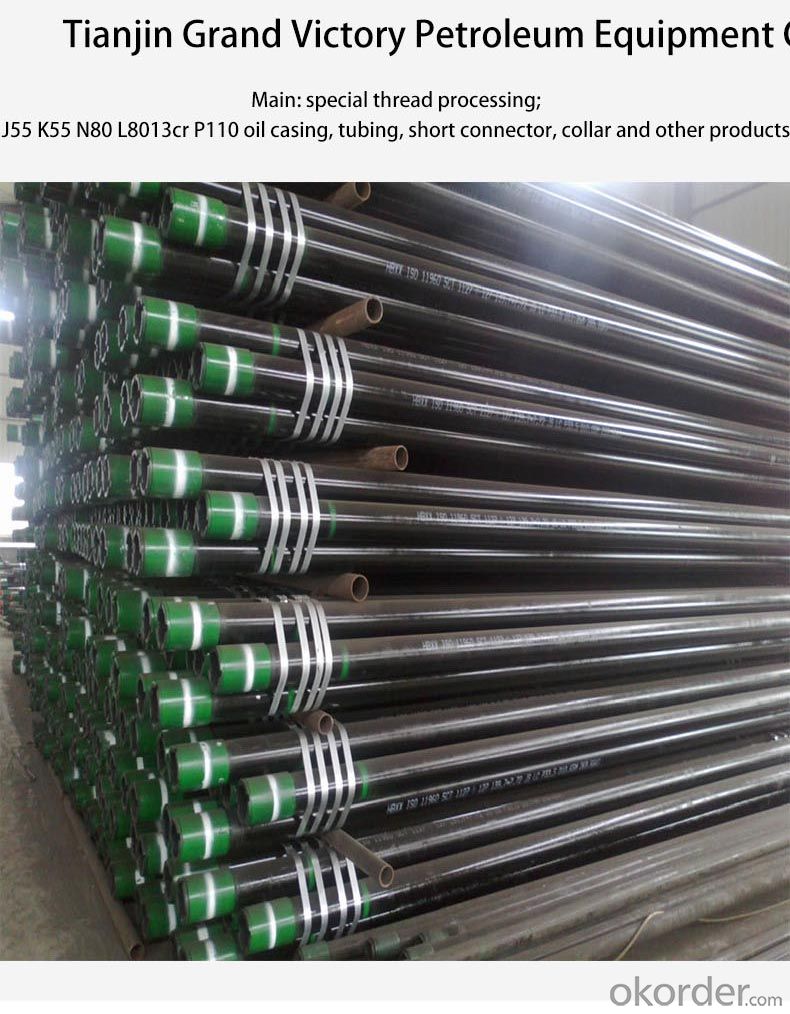
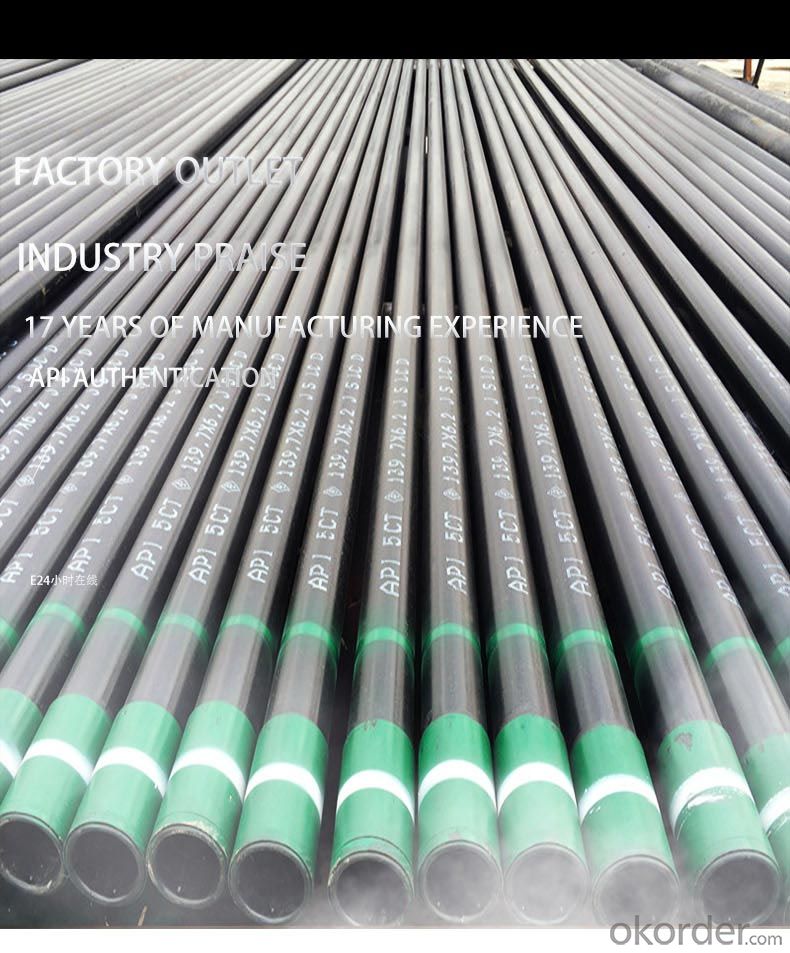
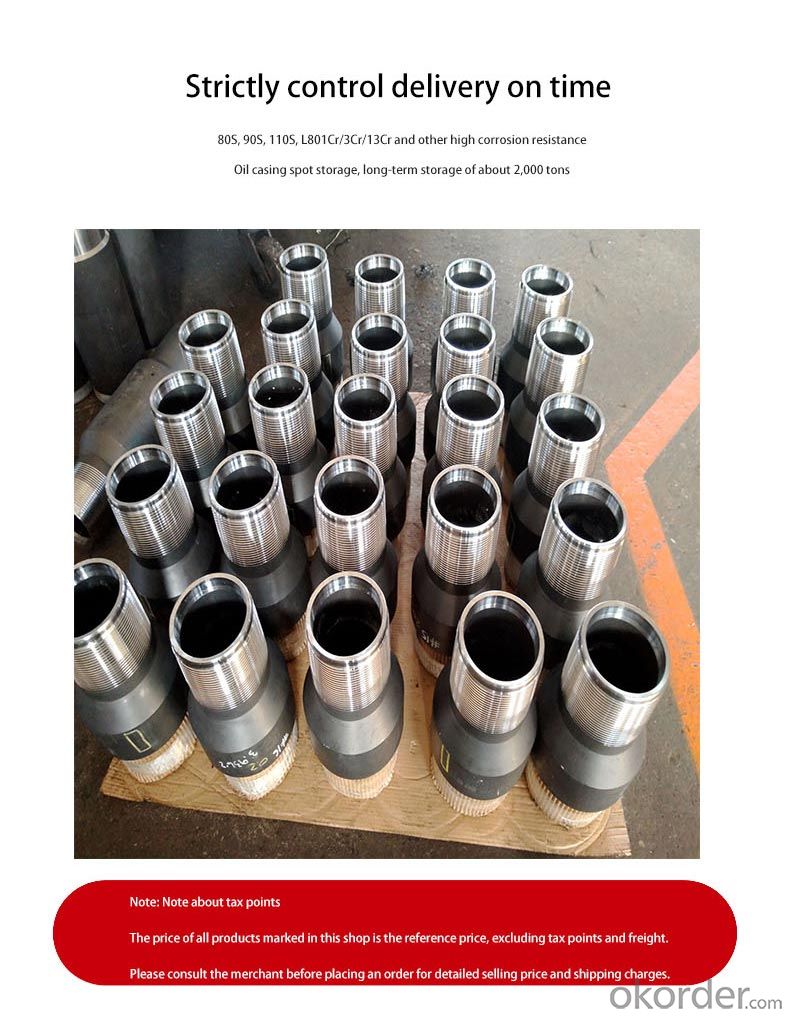
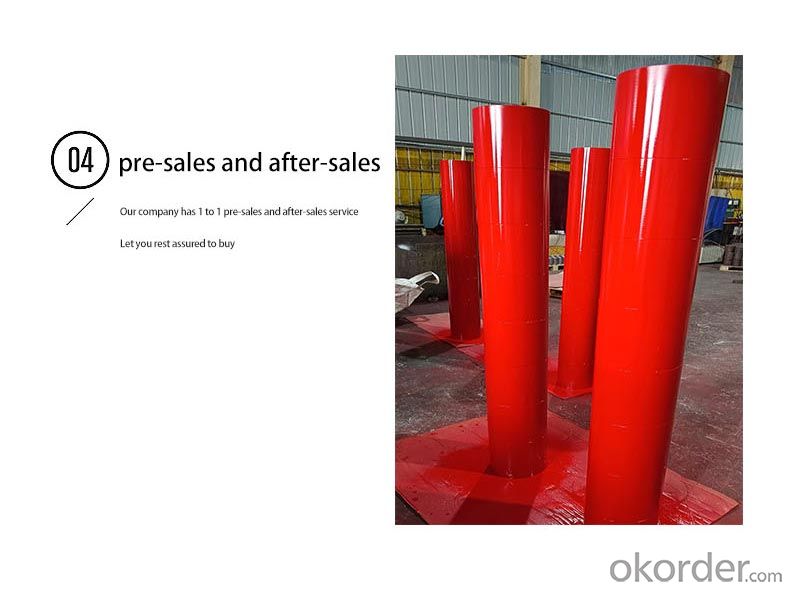
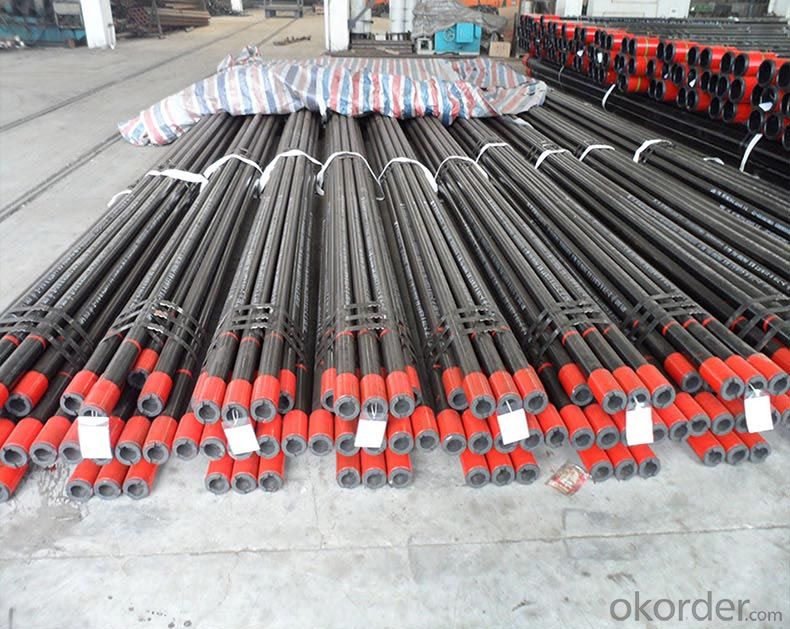
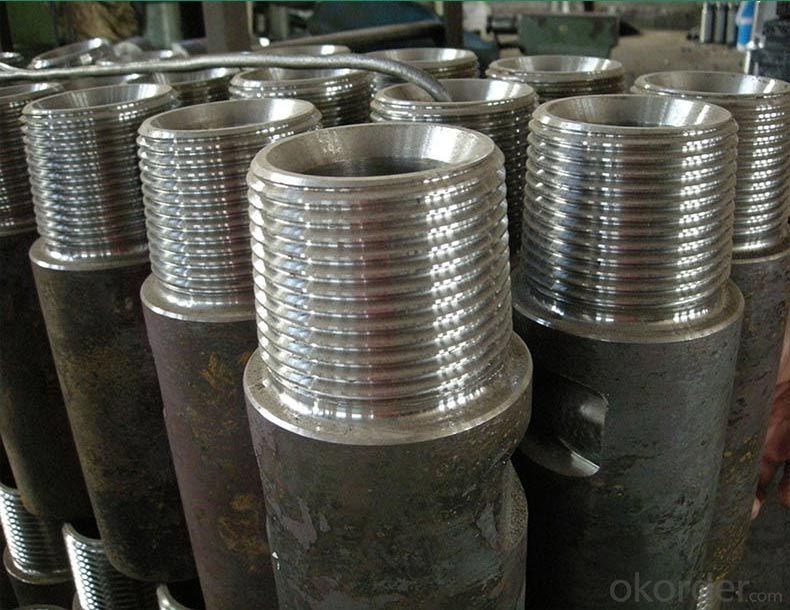
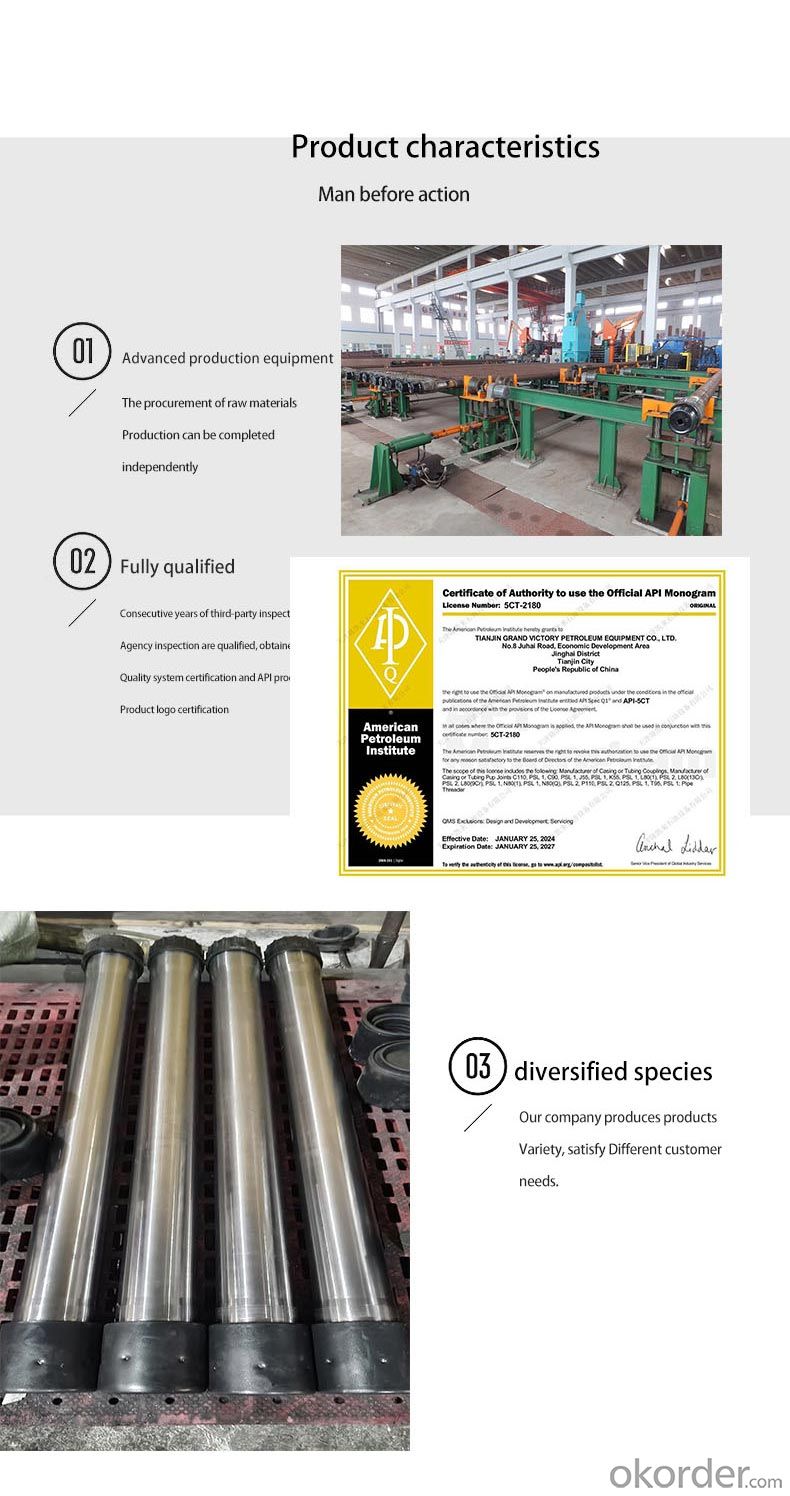
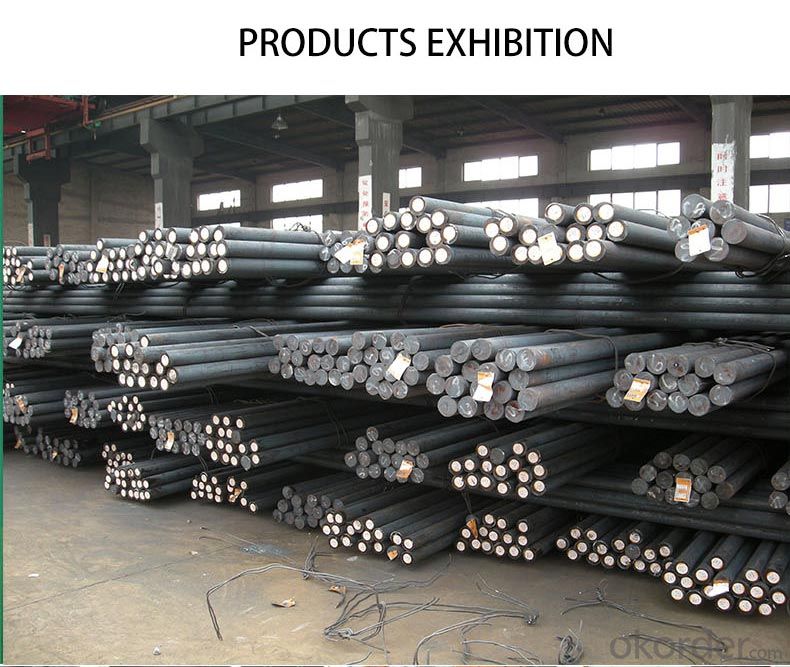
API 5CT J55/N80/P110 OCTG Casing & Tubing Manufacturer Direct
Comprehensive OCTG Solutions for Every Well Profile
As an API-licensed manufacturer, we eliminate intermediaries to deliver J55/N80/P110 casing and tubing with 15% cost savings. Our vertically integrated production process ensures full traceability from steel billet to finished product.
Technical Specifications
Material Science:
J55: 0.45% Mn, 0.25% C composition for shallow wells (≤8,000ft TVD)
N80: Quenched & tempered microstructure withstands 12,000psi collapse pressure
P110: 110ksi SMYS with Charpy V-notch impact ≥45J at -20°C
Threading Technology:
CNC-machined API LTC/BTC threads with ±0.003" pitch diameter tolerance
Optional VAM TOP connections for HPHT wells
Quality Assurance:
100% ultrasonic testing (UT) for laminations
Hydrostatic tested to 80% of yield strength
Applications
J55: Water injection wells, surface casing
N80: Intermediate casing in sour gas fields
P110: Production casing in 15,000psi reservoirs
Case Study
A Permian Basin operator reduced casing costs by 18% using our direct-shipment P110 casing for 35 horizontal wells, achieving 95% torque-turn compliance during running
- Q: Can steel pipes be used for underground oil pipelines?
- Yes, steel pipes can be used for underground oil pipelines. Steel pipes are commonly used in the construction of underground oil pipelines due to their strength, durability, and resistance to corrosion. They are able to withstand the high pressure and weight of the oil being transported, as well as any external forces such as soil movement or seismic activity. Additionally, steel pipes can be coated or lined with materials such as epoxy or polyethylene to further protect against corrosion and increase their lifespan. Overall, steel pipes are a reliable and widely used choice for underground oil pipelines.
- Q: Can steel pipes be used for airport construction?
- Yes, steel pipes can be utilized in the construction of airports. In the construction industry, steel pipes find widespread application, including in airports. They are often employed for underground utilities like water and sewage lines, as well as for structural purposes such as providing support to the airport terminal building. The utilization of steel pipes for airport construction offers several advantages. Firstly, they possess remarkable strength and durability, making them capable of handling heavy loads and enduring unfavorable weather conditions. This attribute is crucial for ensuring the security and stability of airport structures. Secondly, steel pipes are highly versatile and can be easily tailored to meet specific project requirements. They are available in various sizes and thicknesses, providing flexibility in both design and construction. Moreover, steel pipes can be welded or joined together to form longer sections, which simplifies installation and reduces construction time. Furthermore, steel pipes exhibit resistance to corrosion, a vital characteristic in airports where constant exposure to moisture, salt, and other environmental factors is common. This resistance to corrosion guarantees the longevity and dependability of the infrastructure. Lastly, in comparison to materials like concrete or PVC, steel pipes offer a cost-effective solution. They necessitate relatively low maintenance and boast a long lifespan, thereby minimizing the need for frequent repairs or replacements and ultimately saving time and money in the long term. In conclusion, due to their strength, durability, versatility, corrosion resistance, and cost-effectiveness, steel pipes are a suitable choice for airport construction.
- Q: How do steel pipes compare to other materials, such as PVC or copper?
- Steel pipes are generally considered to be stronger and more durable compared to materials like PVC or copper. While PVC pipes are lightweight and easy to install, they are not as strong as steel and can be more prone to cracking or breaking. Copper pipes, on the other hand, are known for their corrosion resistance and are commonly used for plumbing systems. However, steel pipes have the advantage of being highly resistant to extreme temperatures, pressure, and damage, making them suitable for a wide range of applications, including industrial and commercial use.
- Q: How are steel pipes used in the construction of buildings?
- Steel pipes are commonly used in the construction of buildings for various purposes. They are primarily used for structural support, providing stability and strength to the overall framework. Steel pipes are also used for plumbing systems, carrying water and other fluids throughout the building. Additionally, they are used for HVAC (heating, ventilation, and air conditioning) systems, allowing for efficient distribution of air. Overall, steel pipes play a crucial role in ensuring the durability, functionality, and safety of buildings.
- Q: Can steel pipes be used for food processing facilities?
- Yes, steel pipes can be used for food processing facilities. Steel pipes are commonly used in food processing facilities due to their durability, strength, and resistance to corrosion. They are also easy to clean, which is essential in maintaining proper hygiene standards in food processing environments. Additionally, steel pipes can withstand high temperatures and pressure, making them suitable for various food processing applications such as conveying liquids, gases, and solids. However, it is important to ensure that the steel pipes used in food processing facilities are made from materials that are approved for contact with food, and that they are regularly inspected and maintained to prevent any contamination risks.
- Q: How are steel pipes protected against abrasive wear?
- Steel pipes are protected against abrasive wear through various methods such as using protective coatings, lining the pipes with wear-resistant materials, or employing internal or external liners. These measures ensure that the steel pipes can withstand the erosive effects of abrasive materials and extend their lifespan.
- Q: What is the difference between galvanized iron pipe and galvanized steel pipe? Or called different, in fact, is referred to as galvanized pipe?
- Seamless steel pipe material is steel, but also seamless, high strength, used in high pressure, harsh environment occasions. The galvanized pipe is only made on the steel tube, which is similar to the so-called antirust paint
- Q: What does "buried steel pipe" 6*2SC100 mean?
- The embedded steel pipe 6*2SC100 refers to a welded steel pipe with 2 pipe thicknesses of 6mm and a diameter of 100mm. SC pipe means welded steel pipe. Embedment means pre installation (burial).
- Q: What are the standard dimensions and weight of steel pipes?
- The standard dimensions and weight of steel pipes can vary depending on the specific type and grade of steel pipe being used. However, common standard dimensions for steel pipes include sizes ranging from 1/8 inch to 48 inches in diameter, with wall thicknesses ranging from Schedule 5 to Schedule 160. As for weight, it also depends on the diameter and wall thickness, but a general guideline is that a 1-inch diameter steel pipe with a 1/4 inch wall thickness weighs approximately 1.02 pounds per foot. It is important to note that these dimensions and weights can vary based on the specific standards and requirements set by different industries and applications.
- Q: How are steel pipes protected against internal scaling?
- Steel pipes are protected against internal scaling through a process called internal coating or lining. This involves the application of a protective layer on the interior surface of the pipe to prevent the formation of scales or deposits. There are several methods used for this purpose. One common method is the application of epoxy coatings. Epoxy is a durable and corrosion-resistant material that forms a continuous barrier on the inside of the pipe. It helps to prevent the accumulation of minerals and other substances that can lead to scaling. Epoxy coatings are often applied by spraying or brushing onto the pipe's interior surface and then cured to form a hard and smooth finish. Another method used for protecting steel pipes against internal scaling is cement mortar lining. In this process, a layer of cement mortar is applied to the inside of the pipe. The cement mortar acts as a barrier against scaling and also provides additional protection against corrosion. This lining process is commonly used for large-diameter pipes that are used in water distribution systems. Polyethylene (PE) lining is another technique employed to protect steel pipes from internal scaling. PE lining involves the insertion of a high-density polyethylene liner into the pipe. This liner acts as a barrier against scaling and also helps to reduce friction, improving the flow of fluids through the pipe. PE lining is often used in applications where a smooth interior surface is required, such as in oil and gas pipelines. In addition to these methods, regular maintenance and cleaning of the pipes can also help prevent internal scaling. This may involve the use of chemical cleaning agents or mechanical cleaning techniques to remove any deposits that have formed on the pipe's interior surface. Overall, protecting steel pipes against internal scaling is crucial to maintain their efficiency and prolong their lifespan. By utilizing various coating and lining methods, as well as implementing proper maintenance practices, the risk of internal scaling can be significantly reduced.
Send your message to us
High-Pressure 2-3/8" 4.5" Oil Field Tubing Pipes Wholesale Supplier
- Loading Port:
- Tianjin
- Payment Terms:
- TT OR LC
- Min Order Qty:
- 1 m.t.
- Supply Capability:
- 1100 m.t./month
OKorder Service Pledge
OKorder Financial Service
Similar products
Hot products
Related keywords
